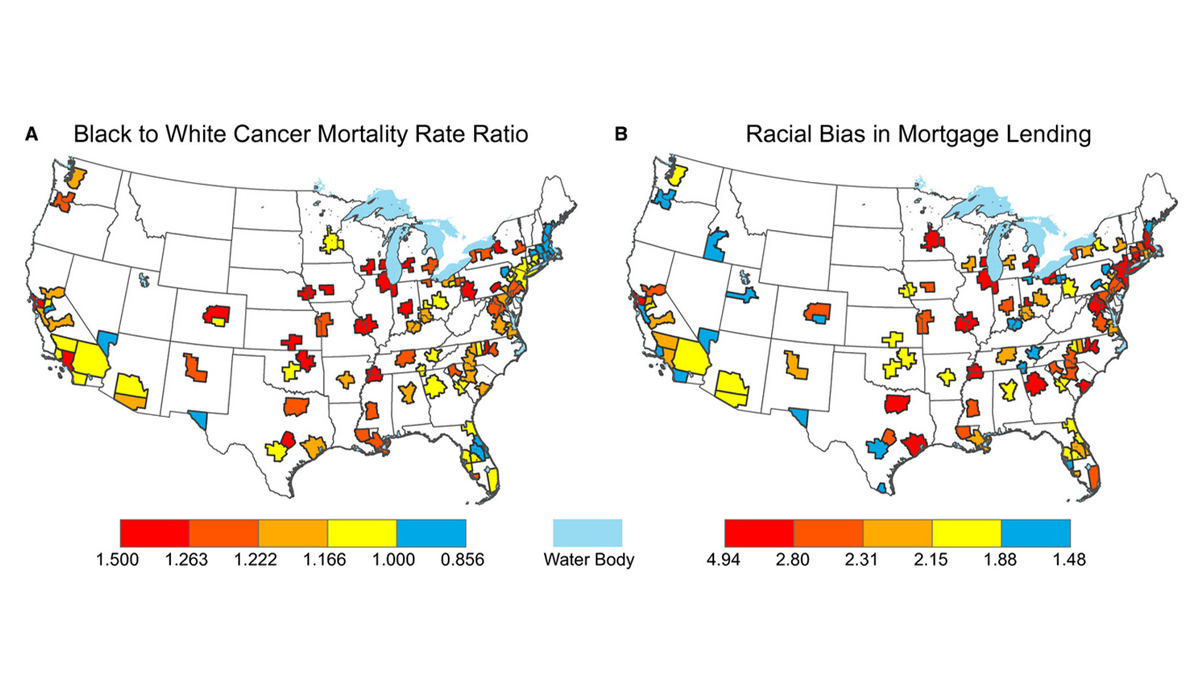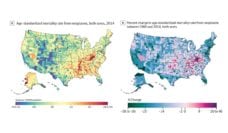Homeownership is a cornerstone of achieving the “American Dream.” In addition to enjoying the sight of their lush green lawns and white picket fences, homeowners reap a multitude of other benefits compared to renters: accumulation of wealth, long-term stability, and overall better health.
Outright discriminatory housing policies like redlining are now illegal, yet many people are denied the opportunity for homeownership as systemic racism continues to affect housing access.
Dr. Kirsten Beyer led a team examining how current housing discrimination—through biased mortgage lending—impacts health. Focusing on the 100 largest US metropolitan areas, the team analyzed data on mortgage denials and cancer death rates.
The maps above depict these two measures of disparities between Black and white populations. Areas with the greatest racial disparities are colored red. If the maps look similar to you, it’s because they are. Areas where Black individuals experienced greater mortgage discrimination also saw higher rates of cancer death among Black people compared to white people.
The researchers also found a clear pattern of racially biased mortgage lending. In every metropolitan area studied, Black individuals were more likely to have their mortgage applications denied.
How does discrimination worsen cancer outcomes? For one, homeownership promotes social connectedness. Homeowners may feel a stronger sense of commitment to their community, thus prompting them to build long-term relationships with their neighbors. These social ties can lower the risk of dying from cancer after a diagnosis, a benefit not available to people forced to become renters because of a denied mortgage application. Second, patterns of racially biased mortgage lending also likely indicates discriminatory practices in other sectors of society. The resulting chronic stress from structural racism can further increase an individual’s risk for cancer.
Homeownership may represent the American Dream, but, more importantly, it adds to long-term health.
Databyte via Beyer KM, Laud PW, Zhou Y, Nattinger AB. Housing discrimination and racial cancer disparities among the 100 largest US metropolitan areas. Cancer. 2019;125(21):3818–3827.














